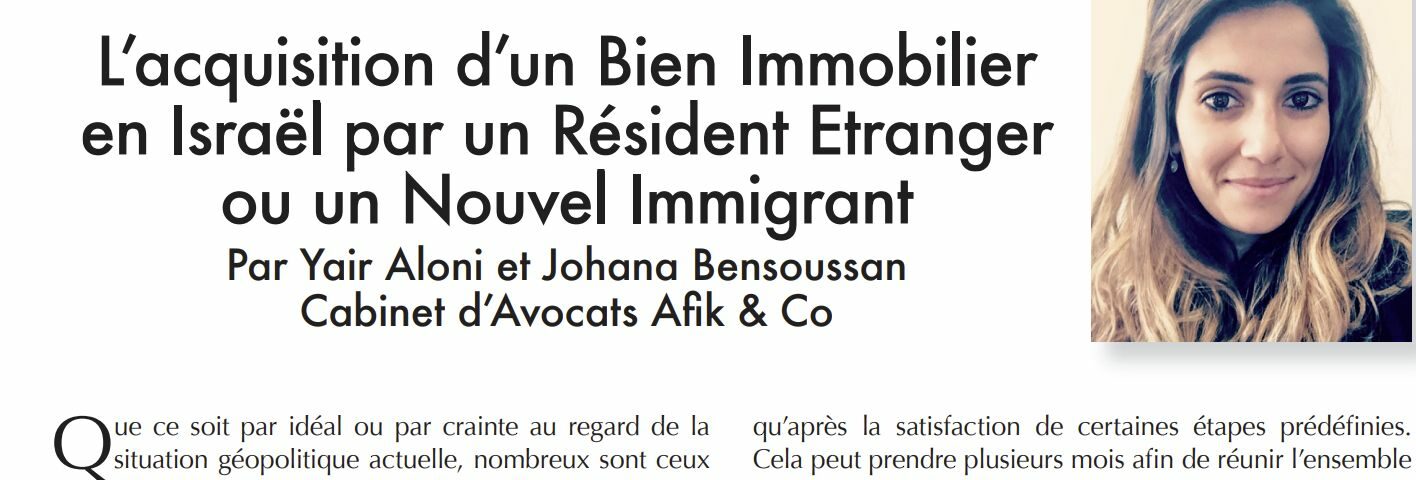Whether it is due to ideals or fears in view of the current geopolitical situation, many wish to purchase a "pied-à-terre" in Israel or invest in Israel by purchasing an asset in order to enjoy the constant increase in Real estate prices in Israel. Any transaction in real estate should be done with the assistance of an attorney experience in the field, but moreover when the purchaser is not fluent in Hebrew or does not reside in Israel.
Negotiating a transaction is not just a matter of knowing the spoken language. The person negotiating it must know the sub-text too and this is another reason for using an Israeli lawyer with experience in the field, even if the purchaser is physically in Israel. In that respect, it is important to note that a memorandum of understanding or any other document may be deemed obligating in Israel and thus obtaining legal advice should be done before executing any document.
If one can not be present in Israel at the time of the transaction, one may appoint another person to sign the documents by a power of attorney. If the power of attorney is given when the empowering party is outside of Israel, in order it to be valid for effecting the transaction at the Land Registry it must be notarized or consular. If, however, the power is given in Israel to a lawyer, it is sufficient that the lawyer authenticates the signature. Note, that a normal power of attorney will not enable the holder thereof to sign affidavits required for reporting to the tax authorities.
Purchasing an apartment requires a set of legal actions in parallel to the transfer of the payment and it is impossible to take all actions at the same time. To ensure the purchaser's money and to ensure that the seller meets all its obligations, it is important that the purchase funds (or most of them) will be held in escrow and will be released to the seller only upon the satisfaction of certain predefined steps. Meeting all the requirements for transfer at the Israeli Land Registry may take several months and in many cases the tax authority approvals arrive only after the date set in the agreement for the transfer of funds. In such a case, usually part of the purchase price will remain in escrow to ensure payment of the taxes due.
Note that if the funds are transferred from outside of Israel or if the beneficiary of the escrow account is not an Israeli the bank may require documentation beyond the ordinary know-your-customer anti-money-laundering process.
Other issues to be considered by the lawyer will be review of the legal status of the property. The examination will not only ensure that the seller has the legal rights in the sold asset and is not a fraud but also to prepare the legal actions required for the transaction (as different procedures will apply depending on the status of the property). Moreover, the lawyer will need to ensure that the property is not encumbered by any third parties rights (such as a mortgage or a pledge), liens or any cautionary notes on contractual rights of third parties. In addition to the lawyer it is advisable to employ a land appraiser to evaluate the property (including review at the Department of Engineering and the local Committee for Planning and Construction) to ensure not only that the price is right but also that there are no zoning laws limitation that will prevent use of the purchased property.
It should be emphasized that this list is not exhaustive of the issues related to real estate transactions in Israel, especially when done by a purchaser who is not an Israeli. Thus, one should consult a lawyer with experience in the field who will review the circumstances.
